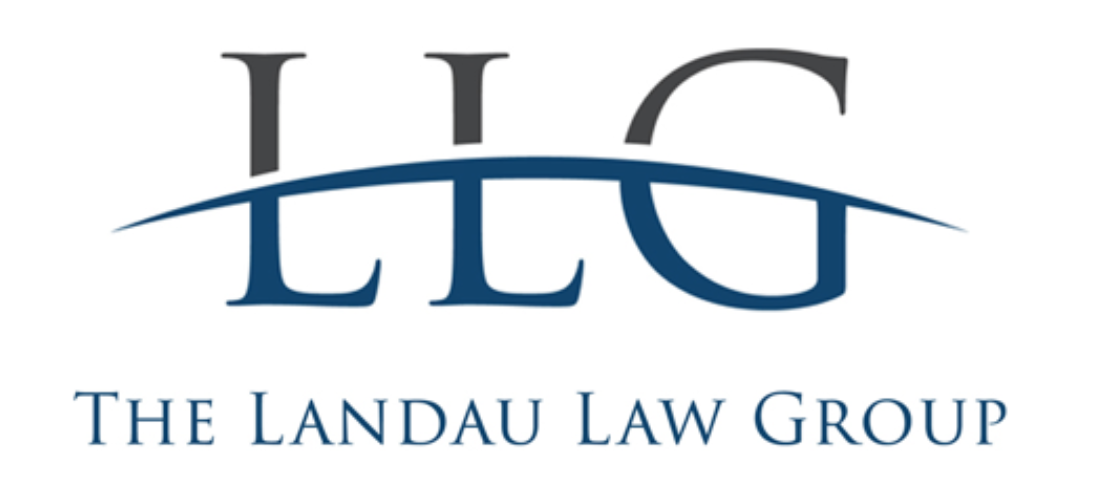Florida Insurance Policy Interpretation: Ambiguity In Insurance Contracts
Navigating the intricate language of insurance contracts can often lead to confusion and misunderstandings. Common ambiguities in these contracts include vague terms, undefined coverage limits, and complex exclusions that can leave policyholders questioning their actual protection. When these ambiguities arise, they can significantly impact our understanding of what is covered, leading to potential disputes during claims.
Understanding these ambiguities is crucial, as they are often interpreted under the doctrine of contra proferentem, which holds that any uncertainty in the language is construed against the insurer. This principle underscores the importance of clarity in policy documents and highlights how these ambiguities can shape our rights and obligations as insured parties.
As we explore the various types of ambiguities that commonly appear in insurance contracts, we will uncover how they can affect our claims process and what steps we can take to minimize confusion. By recognizing these pitfalls, we can better prepare ourselves for the complexities of our insurance policies.
Defining Insurance Ambiguity
In the context of insurance contracts, ambiguity arises when the language used is unclear or has multiple interpretations. Understanding ambiguity is crucial, as it can significantly impact coverage determinations and claims. We will explore the nuances of ambiguous policy language, different types of ambiguities that may occur, and the consequences that these ambiguities can impose on both insurers and insured parties.
Ambiguity in Florida Insurance Policy Language
Ambiguity in policy language often stems from vague or imprecise terms used in the contract. For example, phrases like “reasonable efforts” or “usual practices” can be interpreted in various ways. This lack of clarity makes it difficult for insured individuals to know precisely what is covered.
In many cases, insurers draft policies to be comprehensive but end up including language that creates confusion. Courts typically look at the entirety of the policy to assess ambiguity, taking into account the context in which terms are used.
In such scenarios, where ambiguity exists, the legal doctrine of contra proferentem may apply, meaning that the terms will be interpreted against the interests of the drafter—usually the insurer.
Types of Ambiguities in Florida Insurance Policies
There are generally two main types of ambiguities found in insurance contracts: latent and patent.
- Latent Ambiguity: This occurs when a phrase or term appears clear on the surface but may lead to different interpretations when applied to specific situations. For example, the term “physical damage” may not explicitly define whether it includes water damage.
- Patent Ambiguity: This type refers to ambiguous terms that are evident upon a cursory examination of the contract language. For instance, contradictory clauses within the same policy can create confusion about coverage boundaries.
Recognizing these types helps us understand potential disputes that can arise when interpreting insurance contracts.
Consequences of Ambiguous Terms in Florida
The consequences of ambiguous terms can be significant for both insurance companies and policyholders. For policyholders, ambiguity can lead to denied claims or unexpected limitations on coverage. This uncertainty can complicate the decision-making process regarding risk management and financial planning.
For insurers, ambiguous language can result in costly litigation. When policyholder disputes lead to court cases, the courts may interpret ambiguous terms in favor of the insured party, as established by the contra proferentem doctrine.
Moreover, ineffective communication regarding policy terms may damage the insurer’s reputation and undermine customer trust. Addressing ambiguities proactively can mitigate these risks and foster clearer expectations for all parties involved.
Common Sources of Ambiguity
We encounter various sources of ambiguity in insurance contracts that can complicate interpretation and lead to disputes. These sources include the complexity of insurance products themselves, conflicting provisions within the documents, issues stemming from misrepresentation and non-disclosure, and the effect of endorsements and amendments.
Complexity of Insurance Products
The intricate nature of insurance products significantly contributes to ambiguities. Insurance policies often include specialized language that may not be easily understood by the average consumer. Terms like “subrogation,” “exclusions,” and “deductibles” can lead to confusion.
Moreover, layered structures of coverage options often present challenges. For instance, a policy might include multiple levels of coverage that differ widely in their conditions and limitations. As a result, insured parties may misinterpret what is covered, leading to potential disputes in claims processing. Such complexity often necessitates professional guidance to ensure clarity.
Conflicting Provisions
Conflicting provisions within a single insurance policy can create significant ambiguity. When one clause implies a broader coverage while another suggests limitations, it can leave insured parties unsure of their actual coverage.
For instance, terminology in different sections may contradict each other, such as one section stating coverage for specific perils and another excluding them. This inconsistency can lead to complications during claims processing, often forcing courts to resolve the ambiguity. The doctrine of contra proferentem could apply, interpreting such contradictions against the insurer, complicating the claims landscape.
Misrepresentation and Non-Disclosure
Misrepresentation and non-disclosure by either party can lead to ambiguities that affect the enforcement of the contract. When an insured party fails to disclose crucial information—like previous claims or medical conditions—the insurer may argue that the policy is void due to misrepresentation.
Conversely, if insurers do not clearly outline their obligations or coverage details, it can lead to misinterpretation by the insured. Such situations can create confusion about the actual terms of coverage, resulting in disputes during the claims process. Clear communication from both parties is essential to avoid these complications.
Endorsements and Amendments
Endorsements and amendments added to an existing insurance policy can create ambiguities if not clearly articulated. These changes may modify existing coverage or add new conditions without adequately explaining their implications.
For example, an endorsement might add coverage for a specific risk, but the accompanying language might simultaneously introduce exclusions that negate that coverage. This situation can confuse the insured, who might assume they have comprehensive protection. Therefore, thorough review and understanding of any changes to policy terms are crucial to prevent misunderstandings that can affect claims.
Insurance Policy Interpretation
In the legal interpretation of insurance contracts, certain principles guide how ambiguities are addressed. Understanding these principles, along with jurisdictional variations and the application of specific doctrines, is essential for both policyholders and insurers to navigate the complexities of insurance agreements effectively.
Principles of Contract Interpretation
The interpretation of insurance contracts is grounded in the mutual intent of the parties involved. Courts strive to uphold this intent while interpreting the terms.
Key principles include:
- Clarity Over Ambiguity: If an insurance policy contains ambiguous language, courts often favor interpretations that prioritize clarity, ensuring that policyholders understand the coverage provided.
- Contextual Analysis: Courts consider the entire policy context, including preamble and definitions, rather than isolating terms. This approach helps judges grasp the contractual intent more accurately.
By adhering to these principles, we can better comprehend how courts navigate confusing language in insurance policies.
Jurisdictional Variations
Different states apply distinct interpretations of insurance contracts, leading to inconsistent outcomes. Jurisdictional variations arise from differing legal precedents and statutory frameworks.
Key aspects include:
- Common Law Approaches: Many jurisdictions rely on common law to interpret ambiguities, often favoring a policyholder’s perspective.
- State Statutes: Some states have specific statutes regulating insurance contracts, mandating more favorable interpretations for the insured.
Understanding these jurisdictional differences is crucial, as it influences how we interpret ambiguous contract language based on our location.
The Doctrine of Contra Proferentem
The doctrine of contra proferentem plays a vital role in resolving ambiguities in insurance contracts. This legal principle dictates that any ambiguous term should be construed against the party that drafted the contract.
Key points include:
- Protecting Policyholders: This doctrine protects consumers, ensuring they are not disadvantaged by convoluted language created by insurers.
- Court Application: Courts frequently apply this doctrine in disputes involving ambiguous insurance terms, reinforcing fairness and accountability.
By recognizing the significance of contra proferentem, we can better navigate the complexities of insurance contract interpretations.
Resolving Contractual Ambiguities
Navigating ambiguities in insurance contracts requires a structured approach. We explore the involvement of insurance brokers, dispute resolution mechanisms, and remedies available to policyholders. Each aspect plays a vital role in ensuring clarity and fairness.
Role of Insurance Brokers
Insurance brokers act as intermediaries between policyholders and insurers. They help clients understand policy terms, including potential ambiguities. Brokers can offer detailed explanations and highlight specific clauses that might be unclear, guiding clients through complex language.
Furthermore, brokers advocate for their clients if disputes arise. They can assist in clarifying coverage issues by communicating directly with the insurer. This proactive role helps minimize the impact of ambiguities before they escalate into disputes.
Dispute Resolution Mechanisms
When ambiguities lead to disputes, several resolution mechanisms can be employed. Mediation is often the first step, allowing both parties to negotiate with a neutral third party. This process can help clarify misunderstandings and promote amicable solutions.
If mediation fails, arbitration may be pursued. In arbitration, an arbitrator reviews the case and makes a binding decision. This route is generally faster and less formal than court litigation, making it an attractive alternative for resolving ambiguities efficiently.
Policyholder Remedies
Policyholders have several remedies available when faced with ambiguous contract language. One important remedy is to seek declaratory relief. This legal action allows a court to clarify the rights and obligations under the ambiguous terms.
Additionally, policyholders can argue the doctrine of contra proferentem. This legal principle interprets vague language against the drafter, typically the insurer. If a contract is found to be ambiguous, policyholders may receive a more favorable interpretation that assures fair treatment.
Contact Landau Law: Florida Insurance Lawyers
If you encounter ambiguities in your insurance contract, we encourage you to reach out to us at Landau Law. Our team specializes in navigating the complexities of Florida insurance law.
We understand that uncertainties in policy language can lead to disputes. When these issues arise, having an experienced attorney can make a significant difference.
Why Choose Us?
- Expertise in Insurance Law: Our lawyers have extensive knowledge of Florida’s insurance regulations.
- Personalized Consultation: We offer tailored legal advice based on your unique situation.
- Strong Advocacy: We are committed to protecting your rights and ensuring fair treatment from insurance companies.
Our Services Include:
- Reviewing Insurance Policies: We assess policy language for potential ambiguities.
- Claim Assistance: We guide you through the claims process, especially after severe weather events like hurricanes.
- Bad Faith Claims: If your insurer acts in bad faith, we can help you pursue justice.
To discuss your case, please contact us at Landau Law. We are here to assist you with our legal expertise and support.
Florida Property Damage Lawyers
Hurricane Damage Blog Posts

Why Does Florida Have So Many Hurricanes?
Florida is renowned for its beautiful beaches, vibrant culture, and, unfortunately, its frequent encounters with hurricanes. The state's unique geographical location and climate conditions make it particularly vulnerable to these powerful storms. Florida's position on...

What To Do If You’re Denied Hurricane Damage Claim For Home
Hurricane damage can be devastating for Florida homeowners, leaving them in a state of distress and financial uncertainty. When insurance claims for such damage are denied, it adds another layer of stress to an already difficult situation. Facing a denied claim...

Common Reasons Your Florida Hurricane Damage Insurance Claim May Be Denied
Florida homeowners face a daunting challenge when their hurricane damage insurance claims are denied. Understanding the common reasons for these denials can help you navigate the claims process more effectively. Insurance companies may deny claims due to inadequate...

Before and After a Storm Hits: What You Need To Know
Property Insurance laws have changed and so has the language in most policies. Make sure you’re prepared before the next storm hits. Understanding how the law changes will impact you and knowing what your policy actually covers (and doesn’t) is critical. That’s why...

What Does Hurricane Insurance Cover in Florida?
As Floridians, we understand the unique challenges that come with living in a hurricane-prone area. Hurricane insurance in Florida typically covers damage to our homes and personal property caused by hurricanes, including wind damage and, in some cases, flooding. It's...

How Long Does an Insurance Company Have to Settle a Hurricane Claim in Florida?
When it comes to hurricane damage in Florida, insurance claims are a common occurrence. However, many people are left wondering how long it takes for an insurance company to settle a hurricane claim. The answer to this question is not always straightforward, as it can...

How to File a Hurricane Insurance Claim in Florida
Filing an insurance claim after a hurricane can be a daunting task, especially if you're a Florida resident. With the increasing frequency of hurricanes in Florida, homeowners need to know how to file a hurricane insurance claim effectively. In this blog post, we will...

Renters Insurance For Florida Hurricane Coverage
Learn about the ways that renters insurance can help protect you after hurricane damage Renters insurance is a type of insurance policy that covers the personal property and liability of a renter. It can provide peace of mind in the event of a disaster, such as a...




